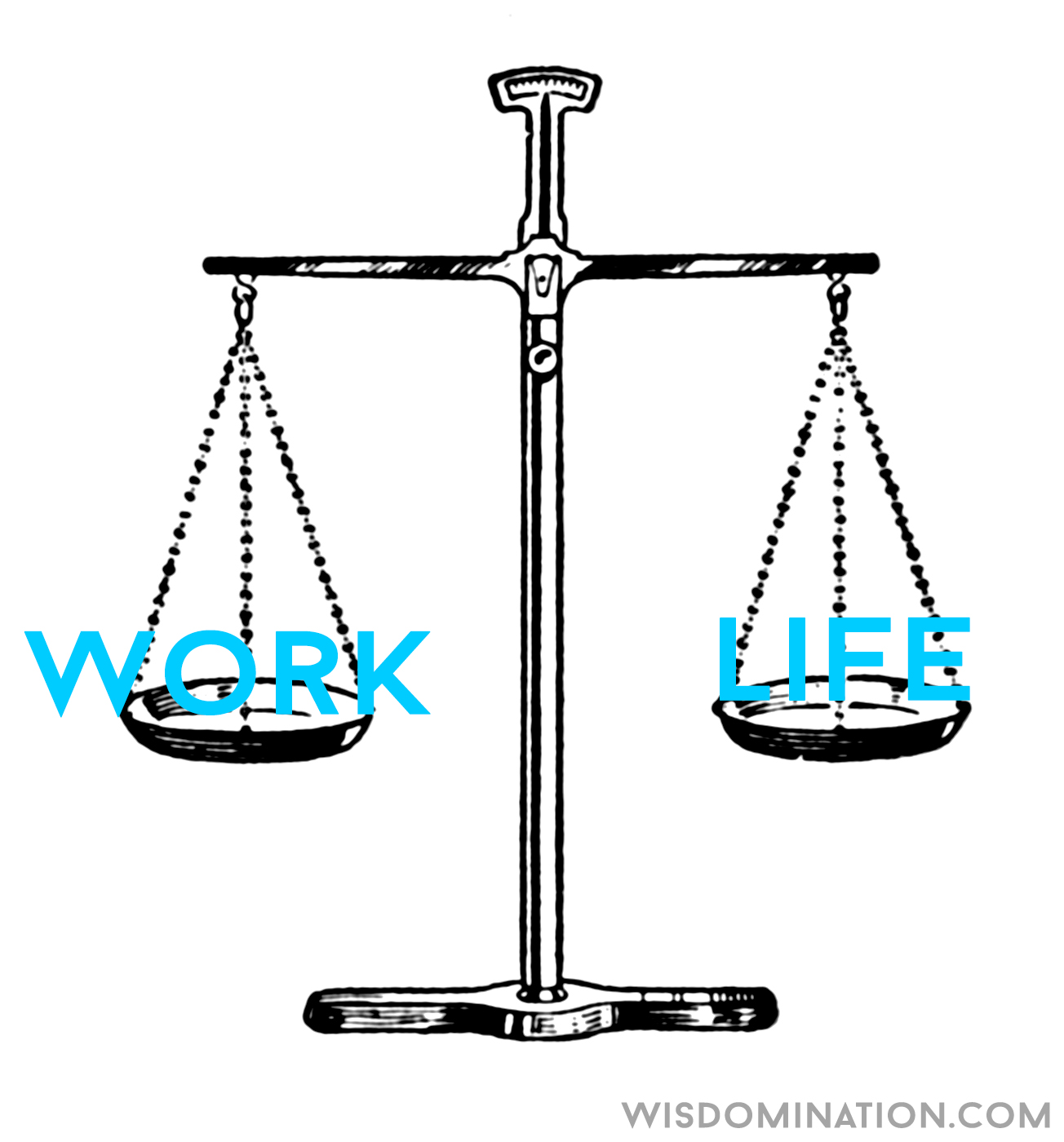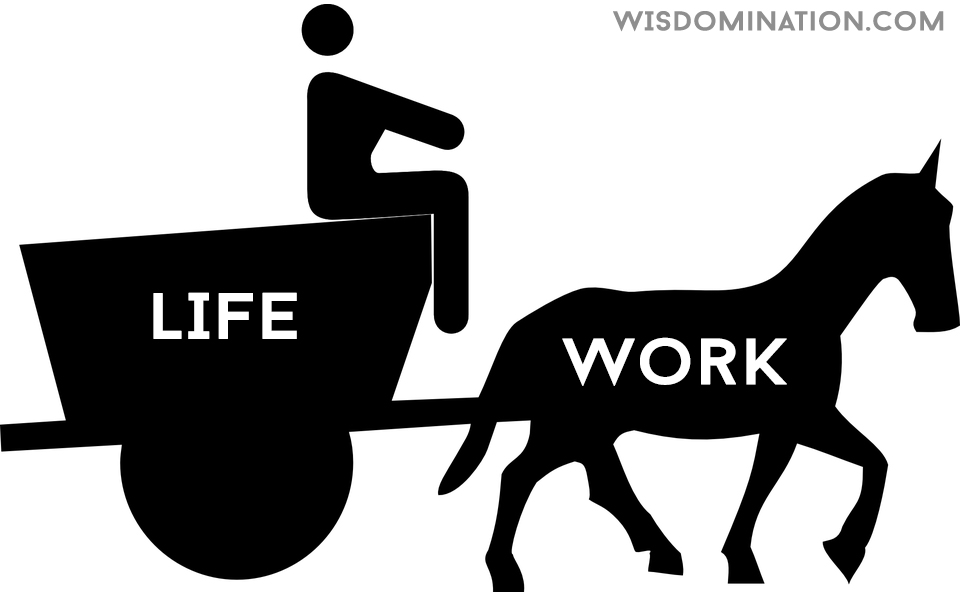When people can’t find a good answer to an important question, it is usually the case that they’re not asking the right question.
Obviously, that doesn’t apply to scientifically hard objective problems like nuclear fusion, room temperature superconductors and faster than light travel.
But it is almost always the case with human problems.
Take “work-life balance”.
The way the problem is phrased already constrains the range of possible solutions. It suggests that work and life are competing values between which, we must find a compromise that will satisfy our unique preferences and situation.
That’s what people usually do. It sounds like the only thing they can do. But it doesn’t sound right.
Because actually, the relationship between work and life is the relationship between tool and purpose, means and ends, the how and the why. The relationship isn’t horizontal, but vertical. It isn’t parallel, but serial.
It’s not like this:
It’s like this:
On top of the “framing error” that work and life are competing values to be balanced rather than tool and purpose, there is often the unconscious assumption that work has to be tedious to count.
By that logic, paperwork counts and sending people to Mars doesn’t.
In other words, people are trying to find the right amount of unpleasant stuff to do to earn the right to do the pleasant stuff. It becomes a question of willingness to put up with dullness, of frustration tolerance, a psychological pain threshold. That again sounds like a framing error that precludes the correct answer from even being thinkable.
(The complementary error by overcompensation to that is the hipstery notion that anything you enjoy automatically counts as work. That’s how we end up with hundreds of thousands of art majors angry they’re not making seven figures, because other people selfishly insist on paying only for things they find useful or enjoyable.)
Sure, a lot of useful work is hard. But “hard” and “not fun” are different things. The two are orthogonal qualities. In fact, some things are much more fun when they are harder. If you work on spaceships, or artificial intelligence, or curing sick people, your work is super hard, but also super rewarding (if not always “fun” in the strict sense).
This may be hard to accept at first, because one of the central lessons growing up was that grownup stuff was inherently dull.
But the link between “work” and “drudgery” was incidental, and followed mostly from historical circumstances. There are many more kinds of jobs today, and most considerably more rewarding, than anything a generation ago.
If you can find a way to make a living doing what you love, so that “work and life” are not competing, but in fact aligned, congratulations. You solved the work-life question by synthesis.
That is, in fact, the correct answer – the realization that you can align work with life, rather than deciding between them.
The second best solution is realizing work is an instrument to other goals. Like life.
Enjoying the article? Consider supporting us.


